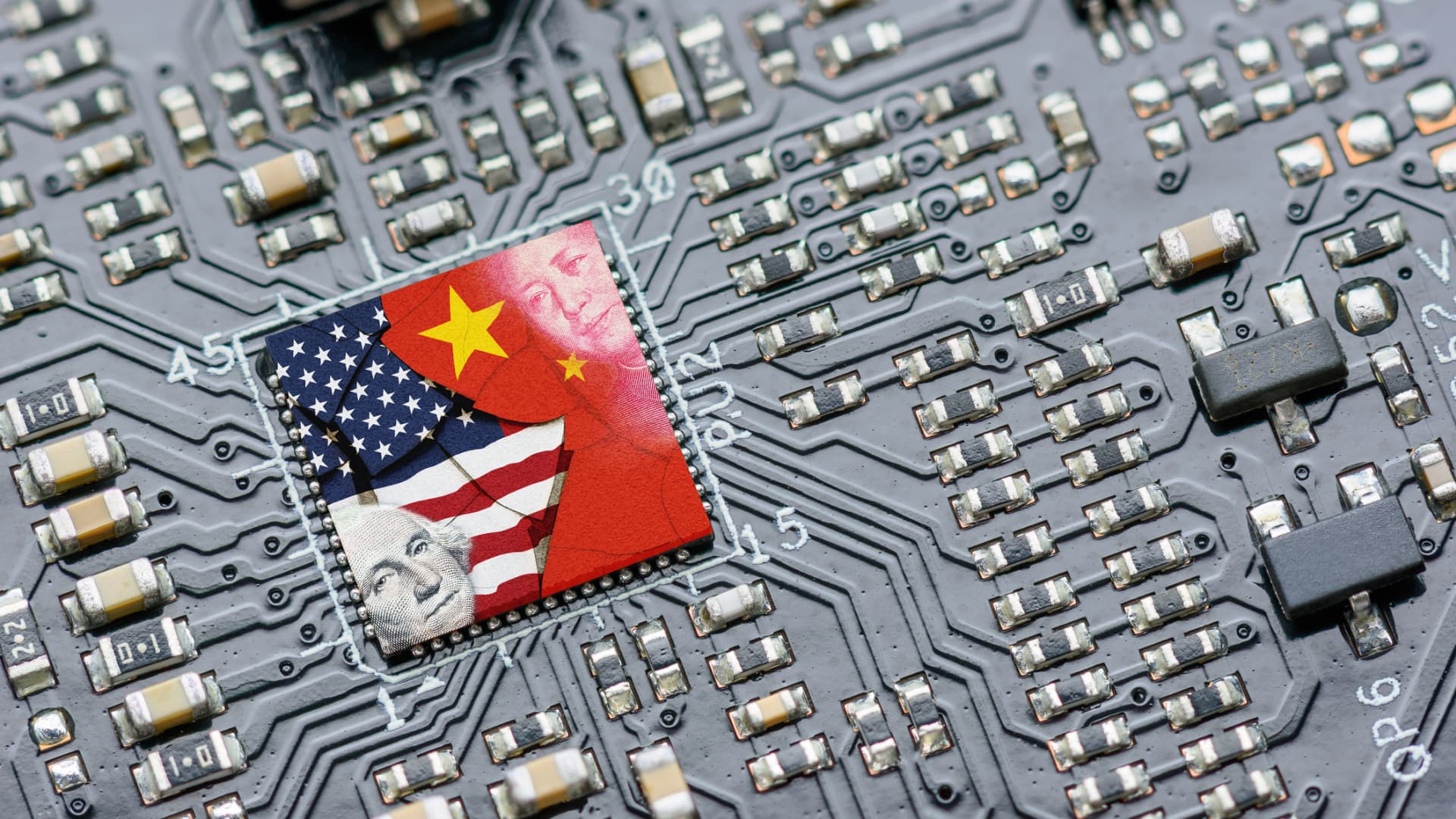
Semiconductors are a key focus in the technology trade war taking place between the U.S. and China.
William_potter | Istock | Getty Images
Shares of Advanced Micro Devices and Intel dipped on Friday after The Wall Street Journal reported that China is ordering the country’s largest telecommunications carriers to cease use of foreign chips.
Chinese officials issued the directive earlier this year for the telecom systems to replace non-Chinese core processors by 2027, the Journal reported, citing people familiar with the matter. The report said the mandate would impact Intel and AMD.
Both stocks traded down as much as 4% on Friday morning.
Intel declined to comment on the report. AMD didn’t immediately respond to a request for comment.
China accounted for 27% of Intel’s revenue in 2023, making it the company’s biggest market. AMD generated 15% of sales from China, including Hong Kong, last year. Their reliance on China underscores the continued importance on the world’s second-biggest economy despite U.S. regulations aimed at curbing chip exports to the country and China’s efforts to be less dependent on foreign technology.
China set new guidelines in December to remove U.S. chips from government computers and servers, blocking processors from AMD and Intel, the Financial Times reported last month. And in October 2022, the U.S. instituted rules designed to limit China’s access to advanced American chips, especially those critical to artificial intelligence technology. Late last year, the U.S. announced new restrictions to prevent the sale of more AI chips to China, seeking to close perceived loopholes in the previous order.
AMD failed to get U.S. approval for an AI chip it designed for China and will need to apply for an export license, Bloomberg reported last month.
Intel has reportedly survived a push by AMD to end its sale of hundreds of millions of dollars’ worth of laptop chips to the U.S.-sanctioned Chinese telecom company Huawei.
WATCH: Global distribution in semiconductor supply will be good for everyone











